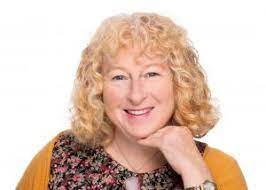Event summary
Date
Start Time
End Time
Holy Family Special School, Charleville, Cork
Autism and Communication for students with additional Severe Learning Difficulties
For autistic children and young people with learning difficulties, the difficulties relating to communication can often be magnified. Many autistic children and young people have significant difficulties with speaking, language, and communication.
This session will examine why students experience difficulty not only with communication but also the motivation to communicate thus impinging on them becoming socially active partners. Understanding communication is as difficult as using language to express needs, wants or offer commentary. Autistic students are more likely to be successful communicators in environments that are designed to encourage and support their efforts.
For the student to initiate effective communication, two conditions should be met.
1. The student must see a reason to communicate, the Why.
This is encouraged by using motivating materials and activities combined with creating situations in which he or she must communicate to make something happen.
2. The student must have a means to communicate, the How.
The student may need to be taught the communicative behaviour needed, and visual supports for such communication will need to be available.
Participants will:
• Understand the various modes of communication used by students with learning difficulties.
• Recognise that visual supports, as tools of communication with and for students, are critically important.
• Understand the need to differentiate the visual support to meet specific needs in definite areas thus helping the student to understand you and develop his or her expressive means.
• Understand how to use engagement as the starting point for communication.
• Recognise various forms of communication and use of a variety of communicative tools.
• Gain ideas for making meaningful communications with the student, even those who are largely non-verbal.
• Look at the importance of motivation to learning and life.
• Gain practical strategies and ideas for maximising the student’s motivation to learn and participate in social life.
Course Overview
• A look at verbal and non-verbal methods of communication.
• Looking at novel approaches to communication such as intensive interaction and using technology to promote communication.
• What is motivation and why is it important?
• How do we motivate autistic students with learning difficulties?
• Ideas for promoting greater engagement and motivation to participate in the wider social world.
Location
Holy Family Special School
Bakers Road,
Charleville
Cork
P56AH39
Get Directions

Joan McDonald
Following many years teaching in mainstream classrooms, Joan worked on individual planning in centres for adults with learning disabilities and those with mental health struggles.
She, then, became one of the first SENOs in Ireland, observing and providing school supports for students with atypical needs across eighty rural schools.
While studying for an M.Ed. in Autism, Joan was taught by and met a variety of autistic adults, which ultimately led to her own autism assessment. Prior to meeting such a diverse range of autistic people, Joan would only have recognised autism in people with profound and complex support needs.
Joan is passionate about using students’ interests to support autistic learners of all levels of cognitive ability to access education and contented lives.
She currently works on a variety of projects with agencies such as Middletown Centre for Autism, Dublin City University, Nua Healthcare, Fingal Libraries. In recent years, creating and delivering the Posauteen and Posaudult courses to help autistic people understand and advocate for themselves has been a major focus of Joan’s time.
Event summary
Date
Start Time
End Time
Holy Family Special School , Charleville , Cork
